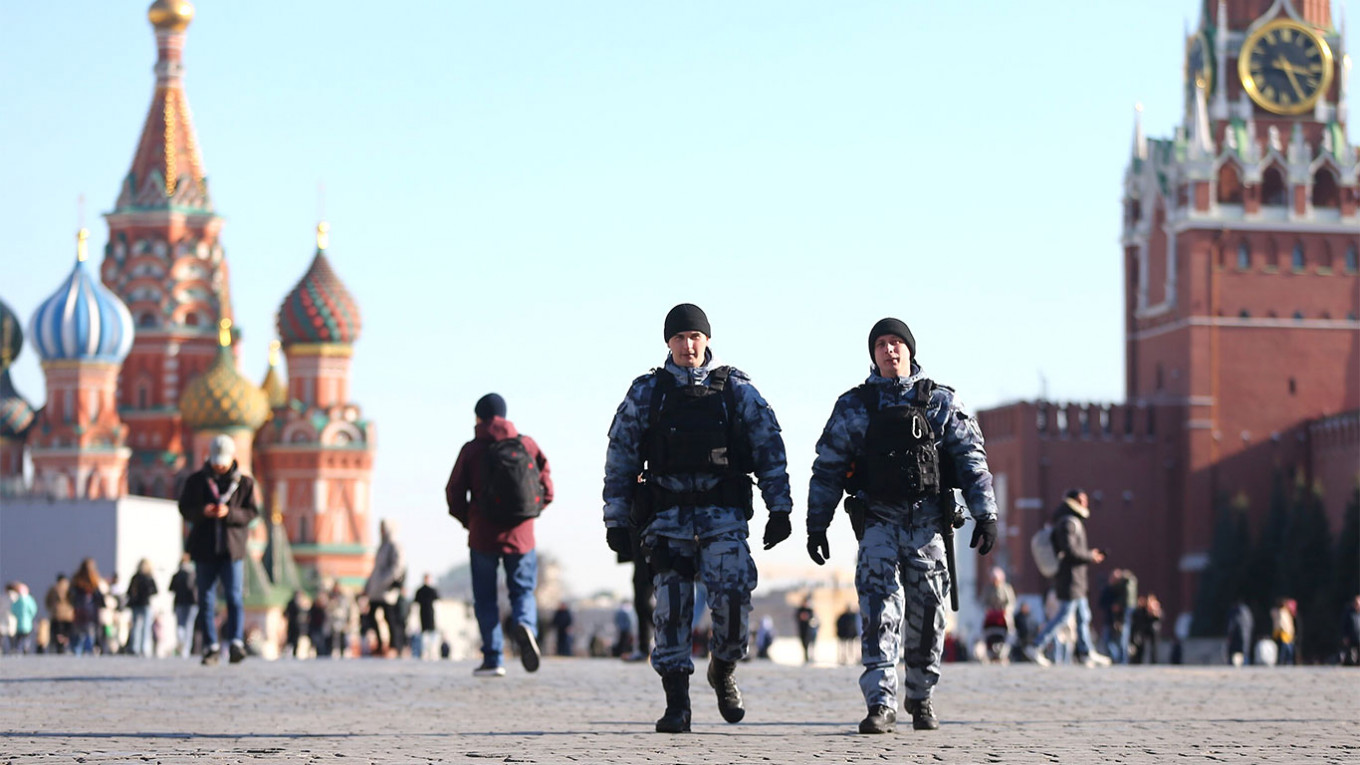The Russian Empire, the Soviet Union, and the Russian Federation have always been multi-ethnic states, with more than 200 ethnic groups living in the country today. But ethnicity has always represented significant difficulties within the state, both for policy makers and for members of ethnic minorities.
Many nationalities have been displaced, discriminated against, and evicted from their native lands over the centuries. One group, the “Russian Germans” — ethnic Germans who moved to the Russian Empire during the reign of Catherine the Great — endured much of what Ukrainians are being subjected to today. My family, for example, left the Soviet Union to Canada in 1924, after being subjected to persecution and some of the most brutal aspects of the Civil War after the October Revolution.
Following the Nazi German invasion of the Soviet Union in 1941, the Soviet authorities quickly moved to relocate ethnic Germans from the western regions of the empire to Siberia, Kazakhstan, and Kyrgyzstan. Hundreds of thousands of individuals and families were forced into cattle cars and transported for weeks to the East, lest the Soviet Union face a “fifth column” inside the state.
These Germans left their homes on the Volga, Crimea, Southern Ukraine, Moscow and St. Petersburg, not knowing if they would ever return. Hundreds of thousands died in the aftermath of the deportations, either of hunger, cold, or difficult work and living conditions. Many of these people were forced to work under slave-like conditions in the so-called Trudarmee (work army), which supported the Soviet Union’s military efforts in food production, agriculture, weapons manufacturing, logging and other spheres. When the war came to an end in 1945, ethnic Germans were not released, but rather forced to stay in the eastern parts of the empire in appalling conditions.
In November 1948, the Supreme Soviet announced that the exile of the German peoples was to be permanent. Germans were forced to sign documents in which they released any and all rights to their former property and agreed to never return home. Germans were often prohibited to attend institutions of higher education, were forbidden from travelling far from their homes, and faced punishments for using the German language or practicing their religion. In essence, their identity was forcefully removed.
But in interviews, diaries, and memoirs, Germans said that despite trying their best to “fit in,” they were always considered fascists by their countrymen. Children recall being called “Nazi” by their classmates, humiliated as a result of an ethnicity that they were not allowed to claim or show. Many of the ethnic German children who grew up in Kazakhstan no longer learned German, except for perhaps a nursery rhyme in their early childhood. In the end, the Soviet Union made every effort to destroy the culture – and to a great extent – the existence of the Russian Germans.
Only as a result of normalization of relations between East Germany and the Soviet Union in the 1970s and 1980s and then following the dissolution of the U.S.S.R. were Germans permitted to emigrate and embrace their own language and culture.
Vladimir Putin has used much of the same playbook with Ukrainians, but if the pretext for the actions against Germans was an actual invasion, now the pretext is an invented invasion “being prepared.” And if the Germans were Soviet citizens living in the Soviet Union, this time the Ukrainians are citizens and residents of a different sovereign country.
To get around that, Putin, in his speech from Feb. 22, 2022, declared that “modern Ukraine was entirely created by Russia, or to be more precise, by Bolshevik, Communist Russia.” The Russian president sought to deny Ukraine’s existence as a national state, arguing that its creation was a fluke of history and a mistake of the early Bolsheviks after the Russian Revolution. In doing so, Putin is refusing to see Ukraine and Ukrainians as an ethnic group, nation, and state.
Like the Germans in 1941, Ukrainians are being forcefully deported from their cities, especially from the East of Ukraine and from Mariupol and sent to the Far East of Russia. Furthermore, the official Russian discourse is that Russia is fighting to protect ethnic Russians from the “fascist Ukrainian regime.” Once again, the idea of a fascist fifth column is omnipresent in the Russian government’s rhetoric.
As Ukrainian cities are being bombed by Russian missiles, reports are emerging that Ukrainians living in Russia are being stopped on the streets and forced to unlock and show police their smartphones. Being Ukrainian in Russia is becoming akin to being the enemy. While Ukraine fights for its right to exist, the Russian government is working tirelessly to eliminate the notion of ‘Ukraine.’ This, indeed, is one of the most terrifying aspects of Putin’s war against Ukraine.
In the three decades since the collapse of the Soviet Union, there have been few efforts inside Russia to confront the legacy of the persecution of national minorities. Ethnic discrimination and the imperialist ideas of Stalin still hold sway over the current government’s leaders. When a society is prevented from coming to terms with its past, it often repeats many of the same mistakes. In a post-Putin era, Russia will have no choice but to dig deep into its past and pursue long and difficult policies of historical reconciliation. If not, ethnic persecution in Russia will not cease. It will persist for generations to come.
A Message from The Moscow Times:
Dear readers,
We are facing unprecedented challenges. Russia's Prosecutor General's Office has designated The Moscow Times as an "undesirable" organization, criminalizing our work and putting our staff at risk of prosecution. This follows our earlier unjust labeling as a "foreign agent."
These actions are direct attempts to silence independent journalism in Russia. The authorities claim our work "discredits the decisions of the Russian leadership." We see things differently: we strive to provide accurate, unbiased reporting on Russia.
We, the journalists of The Moscow Times, refuse to be silenced. But to continue our work, we need your help.
Your support, no matter how small, makes a world of difference. If you can, please support us monthly starting from just $2. It's quick to set up, and every contribution makes a significant impact.
By supporting The Moscow Times, you're defending open, independent journalism in the face of repression. Thank you for standing with us.
Remind me later.








